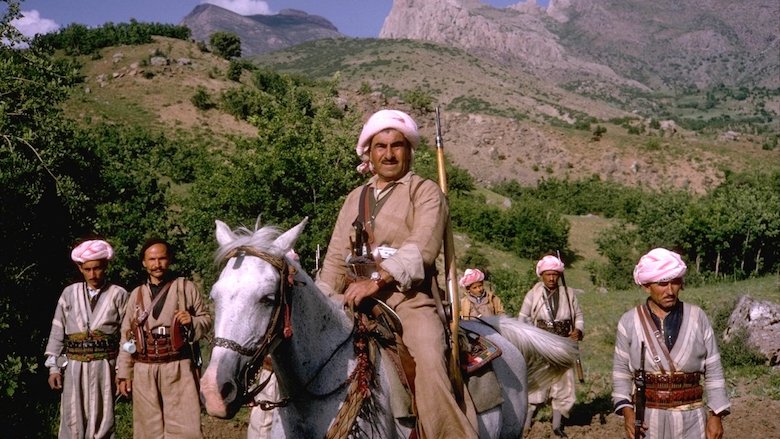The exodus of Mustafa Barzani and his companions to the Soviet Union kept Kurdish freedom alive

Seventy-four years ago General Mustafa Barzani and his companions began what may be the most important march in the struggle for Kurdish freedom, a journey considered a pivotal moment in the history of the Kurdish national movements. The exodus is known as the Epic of Aras, named for the river the travelers crossed to reach their destination.
Barzani and his Peshmerga companions – popularly said to be "the 500" – left Mahabad on May 18, 1947, and struggled on foot for 53 between the borders of modern Iraq, Iran, and Turkey until they reached what was then the Soviet Union to seek asylum.
The journey and their exile from an occupied homeland was a critical step to ensure the Kurdish liberation movement would continue.
Mustafa Barzani’s political and military involvement in southern Kurdistan, what is now the Kurdistan Region of Iraq, dated back to the early 1920s and 1930s in the fight against the armies of Iraq and Colonial Britain. Leading hundreds of Kurds from southern Kurdistan, Barzani in 1946 joined the Kurdish liberation movement led by Qazi Mohammad of Democratic Party of Iranian Kurdistan.

Mohammad proclaimed a Republic of Kurdistan in Mahabad, what is now northwestern Iran, on December 17, 1946, and Barzani was later named its minister of defense. The republic was attacked by Iran in less than a year.
There were a few reasons the young Kurdish Republic fell, primarily the withdrawal of Soviet forces from the west of Iran, which paved the way for the Iranian army with the backing of regional and international powers to invade.
Muhammad, the only president of the Kurdish republic, was hanged alongside his brother and a cousin, and Kurdish libraries and offices were burned and education in Kurdish was banned across Iran.
The execution of his closest friend and the downfall of the republic were a heavy burden but Barzani was determined that the torch of Kurdish freedom would not be extinguished. He was wanted in both Iran and Iraq, and therefore believed exile in the Soviet Union was his only option to keep the dream of freedom alive.

Life in exile and the separation from his companions in the Soviet Union had its own difficulties; on one hand he was away from the loved ones and family, and on the other, the burden of a nation was on his shoulders. Between 1947 and 1951 Barzani wrote to the Soviet leader Joseph Stalin many times requesting better treatment for his companions as they complained about being separated and moved around by some Soviet local leaders, and he asked for a reunion with them. Barzani and his companions were reuited later that year and he was given a special residence in Moscow.

Despite his exile, Barzani was still considered Kurdistan’s national leader and the source of hope for the Kurdish struggle. On August 16, 1947 the Kurdistan Democratic Party Iraq was founded in Baghdad and the politiboro elected Barzani president. The party changed its name to the Kurdistan Democratic Party in 1953.
After the fall of the Iraqi monarchy and the end of the direct influence of colonialism in 1958, the new prime minister, Abdul-Karim Qasim, invited Barzani and his companions back to Iraq and they were welcomed back in October 1958.
On the 74th anniversary of the exodus, the former president of Kurdistan Region, Masoud Barzani issued a statement reiterating its importance to Kurdish history.
Mustafa Barzani’s journey and exile had a direct impact on the sustainability of the Kurdish struggle for years to come, he said. After the downfall of the Kurdish republic in Mahabad, he explained, the enemies of the Kurds bargained on breaking their spirits and ending the struggle for freedom.

But the exodus kept the spirit of self-determination alive, he said, and proved that the Kurdish struggle would endure. That struggle inspired a new generation of Kurdish patriots who believed in self-governance and independence as a guarantor of a bright future for the Middle East, where Kurdish rights are still under threat and their freedom is still denied.
Mustafa Barzani died in exile in the United States on March 1, 1979 and his body was buried for a time in Iran before being returned to Barzan in the Kurdistan Region where he was born. His contribution to the Kurdish cause and liberation in all parts of Kurdish has earned him the title Father of the Kurdish nation and the immortal Barzani.